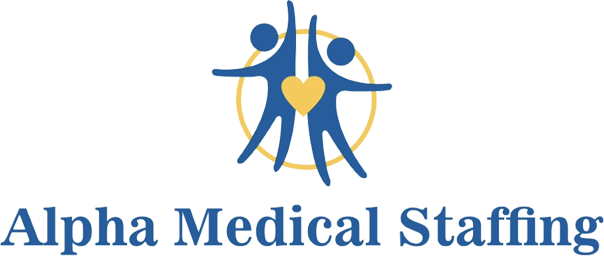How does health care staffing help staffing clients meet their staffing needs?
A: In order for clients to successfully fill their staffing needs, health care staffing companies are essential. The healthcare staffing market was estimated at $34.15 billion in 2020 and is projected to reach $45.93 billion by 2027, showing the expanding demand for staffing services in the healthcare industry, according to a report by Staffing Industry Analysts. These organisations offer a large network of skilled and knowledgeable healthcare workers who may be swiftly contacted to cover a variety of professions. In reality, according to a research in the Journal of the American Medical Association (JAMA), staffing firms for the healthcare industry fill between 10% and 30% of all available positions in the country.
What types of health care professionals can be sourced through staffing agencies?
To meet the unique demands of its clients, staffing companies can find a wide variety of healthcare specialists. These professionals include medical laboratory technicians (MLTs), registered nurses (RNs), licenced practical nurses (LPNs), certified nursing assistants (CNAs), nurse practitioners (NPs), physician assistants (PAs), physical therapists (PTs), occupational therapists (OTs), speech-language pathologists (SLPs), and many more. In reality, according to a survey by the American Staffing Association, nurses account for the majority of healthcare staffing workers (57%) followed by allied health professionals (20%) and physicians (10%).
What are the benefits of using a health care staffing agency?
There are many advantages for staffing clients that choose a health care staffing service. First off, it streamlines the hiring process by making use of the agency’s wide network and knowledge. The Society for Human Resource Management found that it takes 49 days on average to fill a healthcare position. However, by supplying quality individuals in a shorter amount of time, staffing firms can considerably cut down on this time. Additionally, staffing firms provide administrative responsibilities for clients like payroll, benefits, and scheduling. In addition, a CareerBuilder poll revealed that 75% of healthcare companies said staffing firms assisted them in maintaining proper staffing levels, which enhanced patient care and decreased overtime expenses.
How does a staffing agency ensure the quality and credentials of the staff they provide?
For healthcare staffing agencies, maintaining the staff’s qualifications and calibre comes first. To guarantee that the specialists they offer meet the highest standards, they use stringent screening procedures. For instance, according to a study that was published in the Journal of Healthcare Management, 82% of healthcare staffing companies run background checks on the applicants. These checks could include of reference checks, licence and certification verification, and criminal history checks. Reputable employment firms may also have connections with academic institutions and professional associations that give them access to the most recent data on candidates’ qualifications.
Can staffing agencies help with temporary staffing needs during peak seasons or emergencies?
Yes, staffing companies are ready to help with temporary workforce needs during busy times or crises. The National Association of Health Care Assistants found that during peak times, staffing shortages affect 70% of healthcare institutions. In these situations, a staffing company can deliver qualified temporary personnel swiftly to guarantee unbroken patient care. In fact, according to a research that appeared in the Journal of Nursing Administration, using staffing firms for temporary staffing decreased nursing overtime by 52% and increased the number of nurses available to deliver care by 15%.
What are the costs associated with using a health care staffing agency?
Using a healthcare staffing service has a range of charges depending on the expert hired, the length of the assignment, and the client’s particular requirements. The typical hourly wage for a temporary nurse in the United States is between $45 and $60, based Staffing Industry Analysts’ data. Based on elements including the nurse’s experience, specialisation, and location, this fee may change. A proportion of the professional’s salary or an agreed-upon hourly rate are commonly used to calculate the cost for staffing companies. To guarantee openness and set clear expectations, clients should talk to the hiring agency about the price schedule and any other expenditures.
Can a staffing agency assist with permanent placements for health care facilities?
Yes, staffing companies can also help healthcare facilities find permanent employees. Although temporary or contract staffing is sometimes their main focus, several agencies also provide services for permanent placement. 25% of those working in healthcare staffing are in permanent roles, according to an American Staffing Association poll. They can choose from a large talent pool and use their knowledge to match individuals with clients’ needs. Staffing firms can manage the entire hiring procedure, including finding candidates, screening them, and arranging interviews and discussions. This makes it possible for clients to quickly locate qualified applicants for permanent employment, saving time and money in the hiring process.
How can health care staffing agencies help with diversity and inclusion in staffing?
The promotion of diversity and inclusion in staffing is greatly helped by healthcare staffing companies. They are aware of the value of having a diverse workforce that represents the racial and ethnic composition of the patient group. The healthcare sector, which employs people from many ethnic, racial, and cultural backgrounds, is one of the most varied industries in the United States, according to a Bureau of Labour Statistics report. Equal chances are guaranteed for all competent workers, and staffing companies aggressively seek for applicants from a variety of backgrounds. As a result, the patient experience is improved and care is provided that is culturally competent. Further highlighting the advantages of diversity in healthcare personnel, a study in the Journal of Healthcare Management discovered that healthcare organisations with more diverse leadership teams had higher financial performance.

